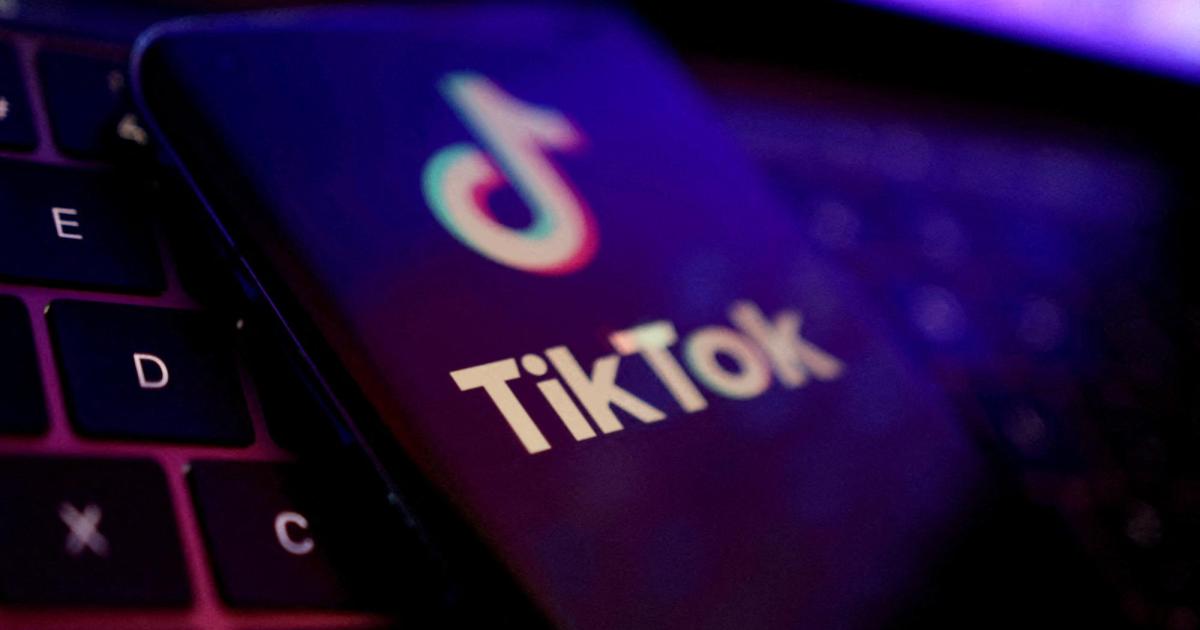The FBI warns that Chinese video platform TikTok could assess the data of millions of Americans. The app raises various security concerns, according to the head of the investigative agency, Christopher Wray, Wednesday on the US Senate Intelligence Committee.
Beijing can use TikTok to control software on millions of devices. In addition, public opinion can be affected by the publication of partisan or manipulative messages.
universal criticism
A bipartisan bill was introduced to Congress by 12 senators on Tuesday. The law aims to give Commerce Secretary Gina Raimondo the authority to ban TikTok and similar foreign service providers due to security risks. The app is used by more than 100 million Americans.
Due to its closeness to the Chinese government, TikTok has been criticized all over the world. Many countries fear that the People’s Republic will be able to control users’ personal data and manipulate public opinion. For this reason, they have banned the use of TikTok or are planning to do so. Overview:
European Union
EU Commission staff may not use TikTok on company devices in the future. This also applies to private devices that have been registered with the Authority. The measure aims to protect UNHCR from electronic threats.
United States of America
Employees of all US federal agencies must delete the video app from their work phones within 30 days. The US House of Representatives, the White House and the State Department, as well as the Departments of Defense and Homeland Security, have previously banned use. In addition, a law is being planned that would allow TikTok to be banned on all smartphones in the United States.
More than half of US states have also banned TikTok on the company’s mobile phones. Many universities in the country block access to the video platform over their WLANs.
Canada
The Canadian government has banned TikTok from all of the company’s mobile phones due to “unacceptable risks,” although there is no concrete evidence yet of a data leak. Prime Minister Justin Trudeau has not ruled out further steps against the app.
Germany
Federal Press Office employees are prohibited from using TikTok on their official devices. According to a media report, the Federal Bureau of Information Security (BSI) has examined the potential risks of the application. The results of this investigation were not initially made public. According to his own statements, the data protection commissioner (BfDI), Ulrich Kellber, has advised all ministries and federal authorities not to install the app on company mobile phones as early as 2021.
India
India had already banned TikTok and dozens of other apps from Chinese companies across the country in 2020, when tensions with the neighboring country over a disputed Himalayan border flared again. She justified the decision on national security risks. The government in Beijing considers this a violation of World Trade Organization (WTO) rules and is calling for the ban to be lifted.
Taiwan
The island nation banned TikTok and some other Chinese apps from state-owned smartphones in late 2022. The government has also opened an investigation into alleged illegal actions. The government in Beijing considers Taiwan to be part of Chinese territory.
Afghanistan and Pakistan
In Afghanistan, the ban of TikTok and the video fighting game PUBG by the Chinese company Tencent is being discussed. According to the ruling Taliban, these programs are “distracting” the country’s youth.
The Pakistani government has temporarily banned TikTok at least four times. The last ban on allegedly immoral and offensive content expired in November 2022.
And in Austria?
Service mobiles of officials in the Austrian Ministry of the Interior contain mobile device management, i.e. a kind of container solution that neatly separates stored data and applications. This is to ensure that official information cannot be accessed. However, due to the concerns of the European Union Commission, the Federal Ministry of the Interior is currently examining whether additional measures are necessary.
Meanwhile, the politicians’ calculations remain the same Johannes Rauch, Caroline Edstadler, Alma mater, Claudia Blackcolm Many of them are still preserved.
TikTok denies it, but admits to being prescient
TikTok owner Bytedance itself denied the allegations. According to TikTok, the data centers will be “completely outside of China.” However, TikTok has admitted that Chinese employees can also access data from the European Union or the USA.
According to research by US media company Buzzfeed, which is based on TikTok’s internal meeting recordings, there should also be a backdoor in the app that allows access to “everything”. Security department staff are said to have said at the meetings that “China sees everything” and that there is a “chief director” who is based in Beijing.
Some of the tools have functions that “nobody knows what they’re for,” according to the recorded meetings Buzzfeed relies on. In addition, last year it became known that Chinese employees had access to data from American journalists.
Face and contact data
In addition to the pure content of the videos, it is also about biometric features such as facial geometry and, similar to Facebook or other social media services, the user’s contact books and links to other accounts.
As a result, TikTok knows the stored cell phone number and email address, who has and how many Instagram followers it has, and can therefore build a network of contacts for individual users. These connections are usually more valuable than the videos themselves.
Bytedance confirms that the data will be deleted once it is compared to the contact details on the private phone. Of course, this cannot be verified.

“Food practitioner. Bacon guru. Infuriatingly humble zombie enthusiast. Total student.”







More Stories
KaDeWe stops selling meat and sausages
Another earthquake near the giant Naples volcano
Trump wants to block Harris' access to donations